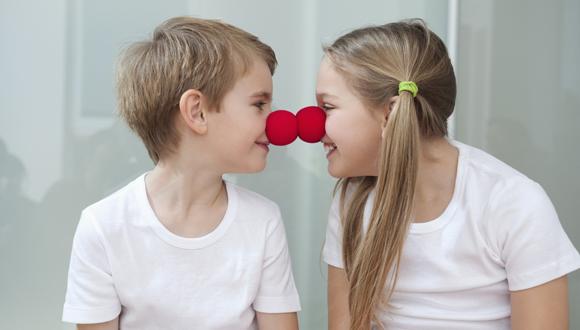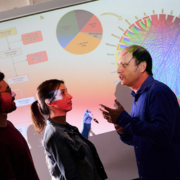Disruptive kids teach their siblings how not to behave
A TAU study finds siblings tend to learn the right lessons from each other's behavior
A new Tel Aviv University study finds that the disruptive behavior of an individual child does not encourage similar behavior in their brothers and sisters.
On the contrary, Dr. Ella Daniel of TAU's Jaime and Joan Constantiner School of Education finds that siblings, predominantly older siblings, of disruptive children tend to show less disorderly behavior over time. The research, conducted in collaboration with Dr. Jennifer Jenkins and colleagues at the University of Toronto, examines the role of sibling training on disruptive behavior during early childhood and concludes that disruptive behavior produces greater disparity — rather than resemblance — among siblings.
"The development of disruptive behavior in early childhood is extremely important, as disruptive behavior starts early in life and behavioral patterns may become stable and resistant to influence later on," Dr. Daniel says. "We found that in early childhood, children do not learn from each other how to be disruptive, violent or disobedient.
"In fact, they are more likely to learn what not to do, or how not to behave. The older siblings of young children who are disruptive tend to become less disruptive themselves over time, creating a polarizing effect on their behaviors."
Going beyond adolscence
Existing research on disruptive behavior is largely focused on adolescents. The new study harnessed data assessing the rate of disruptions as witnessed by both parents to track 916 toddlers and their preschool- and school-aged siblings in some 400 families in and around Toronto.
The families examined had given birth to an infant between 2006 and 2008, and had at least one other child (younger than four years of age) at home. The researchers conducted observations and interviews with the family, including all the siblings in the family, every 18 months.
The scientists collected information when the youngest child in the family was 18, 36 and 54 months old. On these three occasions, both parents reported the disruptive behaviors of each of their children. Using advanced statistical models, the researchers were able to identify the role of siblings in the development of each child's disruptive behavior over time, taking into account heredity, parenting, social environment and shared history.
"The study teaches us that we have little to worry about one sibling being 'a bad influence' on their brothers or sisters," says Dr. Daniel. "Instead, we should be more worried of pigeon holing: that one child will be labeled as a 'black sheep,' and that all children in the family will develop based on pre-assigned roles. We should let each child develop his or her individuality, which naturally changes over time."
The researchers plan to extend their findings, currently focusing on examining the role of siblings in childhood depression and anxiety.






